Each year during July, the disability community celebrates Disability Pride Month. It is a time to honor the history, experiences, achievements, and struggles of the disability community. This month, the Lurie Institute will feature testimonials from staff, students, and Advisory Board members about disability pride, community, care, and advocacy.
Why Does the Lurie Institute Celebrate Disability Pride Month?
Disability is the heart of our work. The Lurie Institute for Disability leads research that helps shape policies, programs, and practices that improve the lives of people with disabilities across the lifespan. We envision a future where people with disabilities can live in the community and easily access all the support they need. Disability Pride Month is an opportunity for all of us to celebrate people with disabilities, past and present, and their brilliance.
How We Celebrated Disability Pride Month in 2023
Staff, Student, Board, and Peer Researcher Testimonials
Click on a name to jump to their testimonial below.
Laurin Bixby, Research Scientist
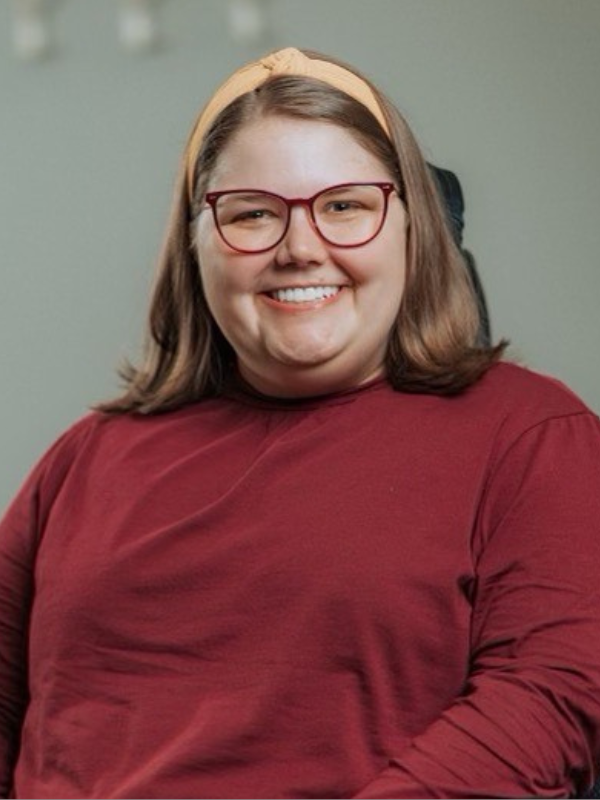 What does disability pride mean to you?
What does disability pride mean to you?
Disability pride means celebrating our uniqueness and recognizing everyone's humanity. Life can be way more fun when you move away from the norms and confines constructed by nondisabled people.
What makes you proud to be a disabled person or disability advocate?
As a community, we exemplify the power of interdependence and find ways to support each other's access needs in an inaccessible world.
In what ways has the fight for inclusion taken an emotional or physical toll on you?
Having to navigate a world that is not built for you is physically and emotionally exhausting. Being disabled certainly forces you to be creative and persistent.
How do you cope with the frustration of inaccessible systems or environments?
I try to cope with the frustration of inaccessible systems or environments by finding solidarity in community and making space for disabled joy through creative outlets.
Tori Lajous, Lurie Institute Student Fellow 2025–26
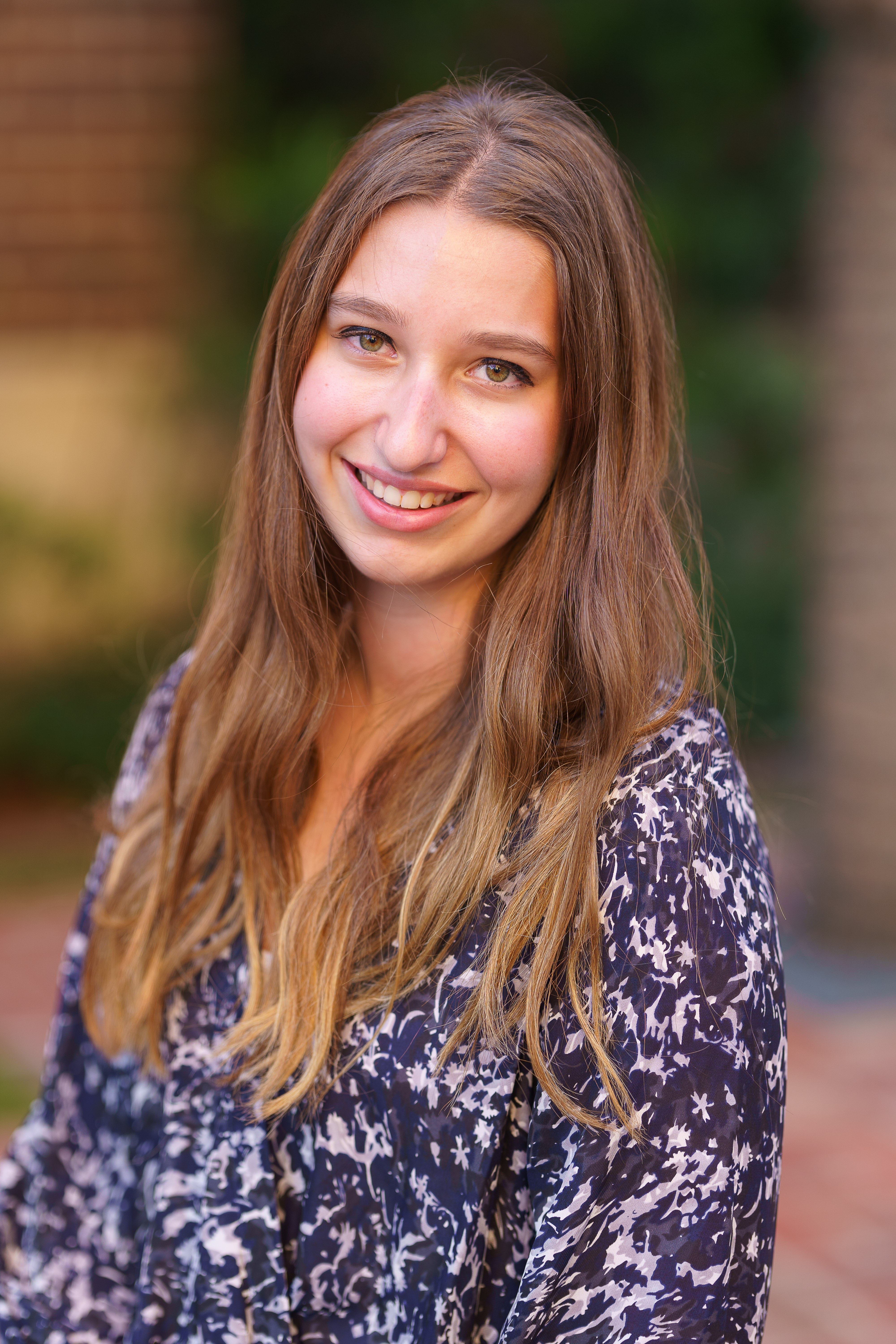 What does disability pride mean to you?
What does disability pride mean to you?
It means taking pride in my existence and the knowledge that despite the struggles I have, I am still living a fulfilling life. It means taking pride in my perseverance and recognizing that I am capable not despite my disability, but because of it.
What does the 2025 theme “We Belong Here, and We’re Here to Stay” mean to you?
Disabled people have existed for as long as people have existed. Though it may not have always been recognized, it has always been present. Disability is a fundamental part of humanity and it's not going anywhere.
What piece of disability history or identity would you like more people to know about?
The Section 504 sit-in and the fight to get the ADA passed.
What’s your favorite part of having a disability?
The community that comes with it. The disability community is one of the kindest and most inclusive communities I've had the privilege to be apart of.
Why is it essential for disabled researchers & contributors to be at the forefront of disability research, particularly when these efforts are not being addressed elsewhere?
Disabled people know best what issues are affecting our community. The same way there has been a push to include Black people in Black research and queer people in queer research, there should be a push to include disabled people in disability research.
Jennifer Senda, Advisory Board Member
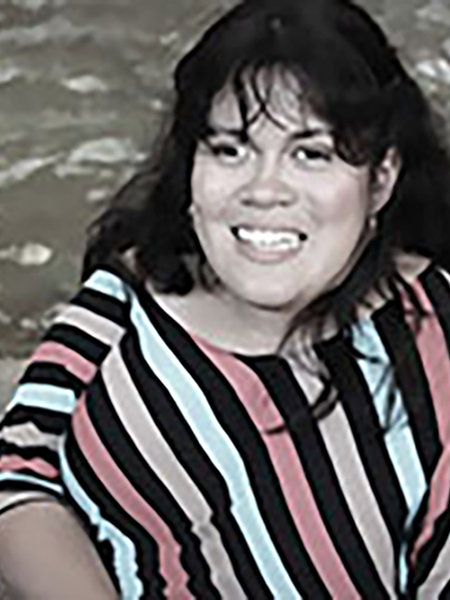 What does disability pride mean to you?
What does disability pride mean to you?
Disability pride means acceptance, perseverance, and self-love. My differences make me, but not less human. Disability Pride means accepting that you're meant to break the mold.
What does the 2025 theme “We Belong Here, and We’re Here to Stay” mean to you?
We will not be hidden because we make you uncomfortable. We are a part of society.
What piece of disability history or identity would you like more people to know about?
I would like the capital crawl to be a part of History that is taught in United States schools and all over the world
How do you celebrate disability pride and center disabled joy this month?
I will continue to write my state representatives and senators to ensure that our voices are heard.
What makes you proud to be a disabled person or disability advocate?
My community makes me proud. I continue to learn so much from my peers and I am proud to say that I have a disability, that I have survived despite the pitfalls society places on our community in general.
What’s your favorite part of having a disability?
One of the skills I developed early is ability to empathize. Everyone is going through struggles, but we can help each other through empathy and compassion.
Why is it essential for disabled researchers & contributors to be at the forefront of disability research, particularly when these efforts are not being addressed elsewhere?
No one knows disability better than those who live with it. Disabled researchers have insight into disability that their peers may not have. Also, there's the fact decisions were made for us without our consent for so long, and we deserve to be at the Forefront especially when it comes to issues that directly concern us.
What’s something about living with a disability that people often misunderstand or overlook?
I do not want to inconvenience anyone. I simply want the same rights afforded to all citizens. Adapting isn't a choice, it's a necessity I don't necessarily want to draw attention to myself but I have to speak out against lack of access
What’s one experience you’ve had that highlights the ongoing struggle for disability rights and justice?
Lack of access is something that is a continuous struggle
In what ways has the fight for inclusion taken an emotional or physical toll on you?
Sometimes it's hard being a parent with a disability because lack of access means that I can't do things with my child that I would like. There are still places in the United States that could be made more accessible including the area in which I live. It can be heartbreaking and disappointing for both of us.
How do you cope with the frustration of inaccessible systems or environments?
I continue to write to my state representatives and senators, hoping for change and Improvement I've also learned to work around the system in my area.
Judith Brown, Advisory Board Member
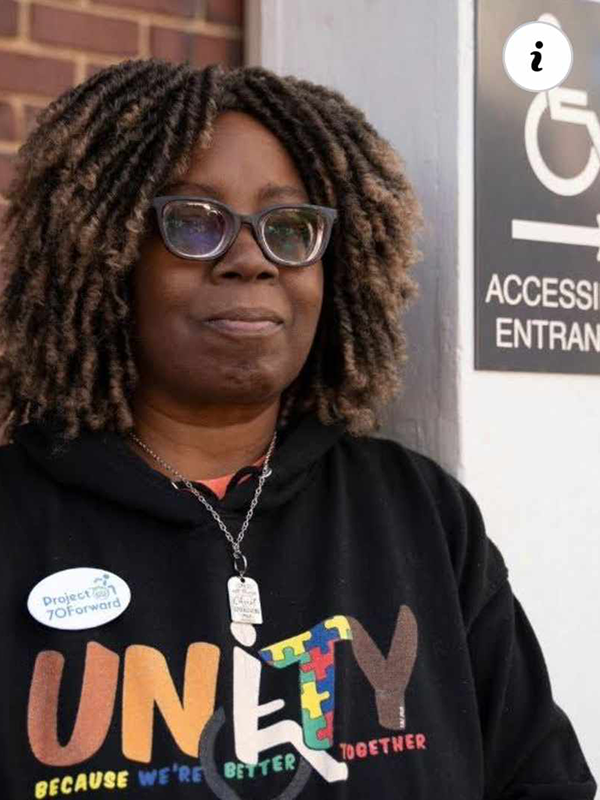 What does disability pride mean to you?
What does disability pride mean to you?
I learned about Disability Pride and at first, I didn't identify with it. But, as I learned about disability history and I grew in my advocacy, I felt a sense of honor and responsibility to use the term. I felt that when I used it as a hashtag, I not only felt empowered, I felt I empowered others to tell their story.
What does the 2025 theme “We Belong Here, and We’re Here to Stay” mean to you?
People with disabilities have been on this planet since the beginning of time. We have to learn our history and hold up our heroes. It is not enough to have awareness or even acceptance. It is time to become active participants in ALL activities of life.
What piece of disability history or identity would you like more people to know about?
I would like to make people understand that my son was 7 when The Olmstead Act was passed. That as a new mother, I was told to put my son away. That our freedom came years after the Civil Rights Movement of the 1960's and that we are no longer asking for the laws to be followed. We are demanding that the delay be over!
How do you celebrate disability pride and center disabled joy this month?
I will post as many days as I can on social media (FB, IG, BlueSky, LinkedIn, Threads). There will be Livestream events, Bed-Ins for change. My town is holding a Disability Showcase, where I will publicly speak, and we hope to bring some disability-related shorts, podcasters to share about being "seen" and "heard."
What makes you proud to be a disabled person or disability advocate?
I am very proud to be a black woman and disability advocate in the South. Daily, by just the words, visuals and presence, I am breaking the stigma around being a disabled person. This makes me feel proud to be alive at this time and in this location in order to break barriers for others.
What’s your favorite part of having a disability?
The Questions!! I love being able to share and show how much I (and my sons with autism) have accomplished. It isn't inspirational porn, it is in your face...living our lives to the fullest.
Why is it essential for disabled researchers & contributors to be at the forefront of disability research, particularly when these efforts are not being addressed elsewhere?
I am a part of disability research and data capture through Brandeis University, Tufts University Poverty Simulations, NC CEAL Research Leadership Academy. It is important because current sources of disability research do not always agree or cover the issues facing people with disabilities. I love reports by Urban Institute that cover important current issues. I offer my life history as often as I can to make the pool of contributors as diverse as possible. Also, being at the forefront allows us to shape the questions as well as the responses.
What’s something about living with a disability that people often misunderstand or overlook?
For me, most people overlook that my energy and abilities "Ebb and Flow." I have to work on maintaining a level of engagement that often means that working virtually is an accommodation, not just an afterthought.
What’s one experience you’ve had that highlights the ongoing struggle for disability rights and justice?
The lack of parking at major events, rallies or protests. When they do not take into account the increase in people with disabilities who want to be in public spaces. Parking far away from the event is not always possible. This increases the isolation and public erasure of residents.
In what ways has the fight for inclusion taken an emotional or physical toll on you?
The fight for inclusion is a tough place to be, live and play. I have had to take multiple days of rest and restoration in order to deal with the pain and other symptoms of when my body has pushed past its limits. Mentally, it is a thoroughly tiring and aggravating exercise to still experience the lack of awareness and the inertia around system change.
How do you cope with the frustration of inaccessible systems or environments?
Ironically, spending time away from those systems and environments helps. Going to places that have thought about accessibility, who have staff that makes you feel welcome allows me to rejuvenate and get back into the fight.
Monika Mitra, Director of the Lurie Institute
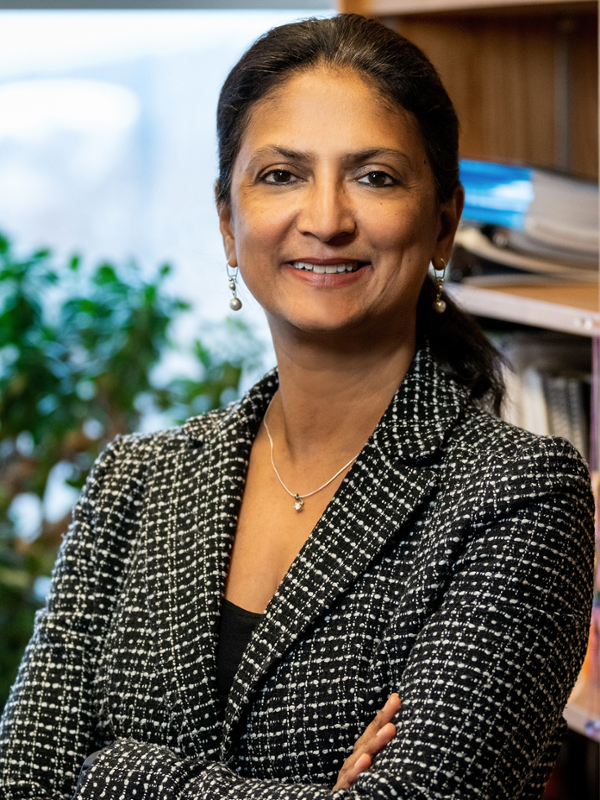 What makes you proud to be a disabled person or disability advocate?
What makes you proud to be a disabled person or disability advocate?
As a long-time disability ally and researcher, I’m proud to support a community that pushes for more equitable, inclusive systems. I’ve learned a great deal from disabled advocates and researchers whose work not only challenges assumptions but also shapes the evidence base we rely on to inform policy and practice.
Why is it essential for disabled researchers & contributors to be at the forefront of disability research, particularly when these efforts are not being addressed elsewhere?
Disabled researchers and contributors bring essential lived experience, insight, and expertise that are too often missing from disability research. When disabled people are not meaningfully included, the research risks being incomplete, misguided, or even harmful. Centering disabled voices leads to more relevant, ethical, and thoughtful research, and ultimately to stronger policies and systems.
Maddie Crowley, Communications Specialist
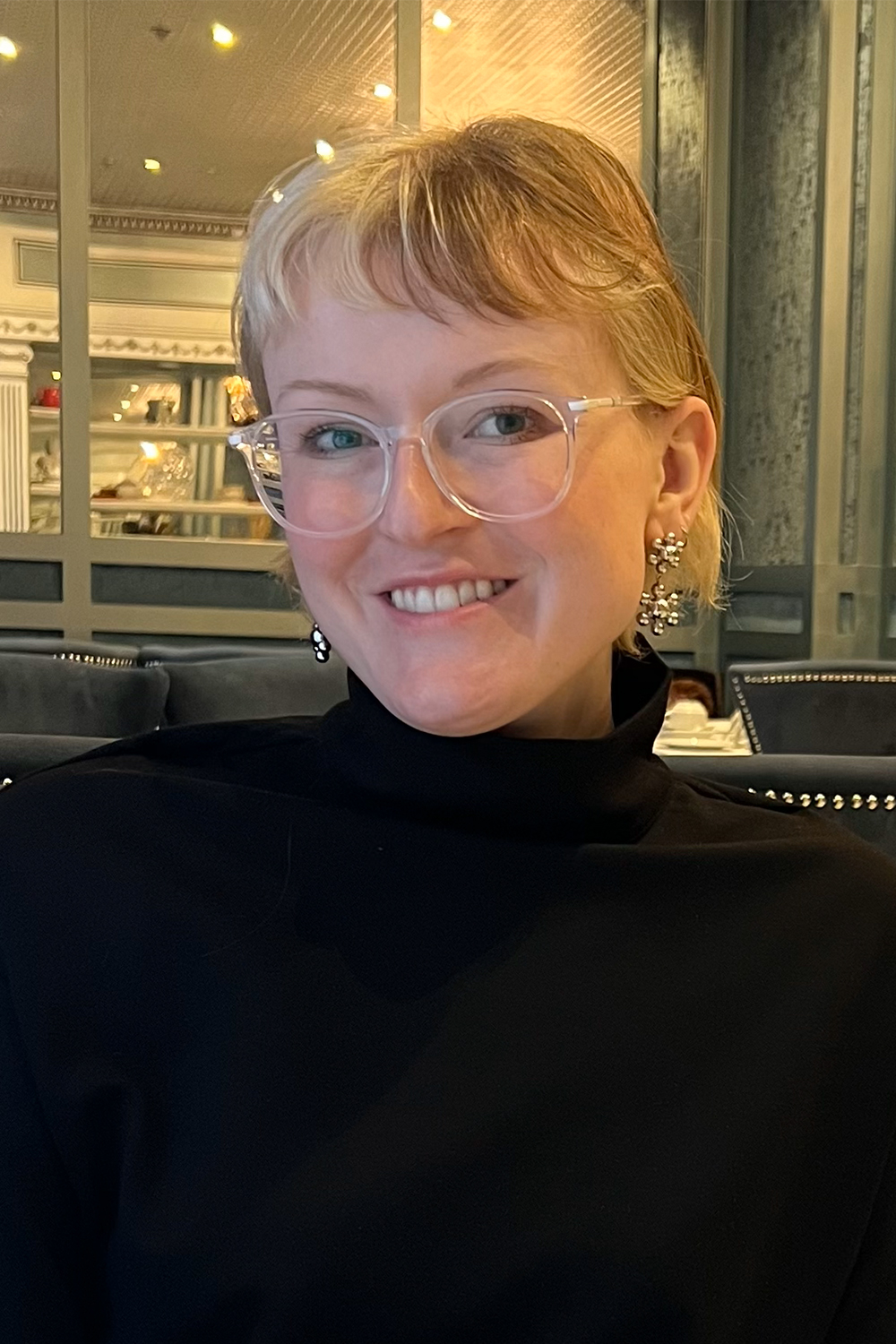 How do you celebrate disability pride and center disabled joy this month?
How do you celebrate disability pride and center disabled joy this month?
Reading disabled authors, listening to disabled podcasts, sharing disabled art, and more. Spreading the creative work of disabled people!
What’s your favorite part of having a disability?
My disabilities brought me the life and community I have today. Without my health conditions, I wouldn't have the friends, career, and life that I have now, which I deeply cherish. Disability has brought so much to my life.
Wendy Peverill-Conti, Department Administrator
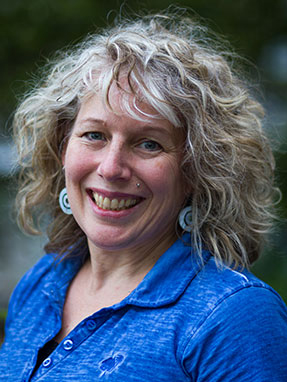 What does disability pride mean to you?
What does disability pride mean to you?
Feeling like you can be your authentic self in the world
What makes you proud to be a disabled person or disability advocate?
Thinking of all of my friends and mentors in the disability community. I am proud to be a part of this community.
Why is it essential for disabled researchers & contributors to be at the forefront of disability research, particularly when these efforts are not being addressed elsewhere?
"Nothing about us without us." No-one knows the issues directly affecting disabled people, except for themselves.
What’s something about living with a disability that people often misunderstand or overlook?
I don't think people appreciate the constant struggle to be included, respected and considered that disabled people experience.
What’s one experience you’ve had that highlights the ongoing struggle for disability rights and justice?
Helping my adult son navigate SSI and DDS. The fact that he cannot have more than $2000 in assets, and cannot marry without a huge penalty has to be addressed!!
In what ways has the fight for inclusion taken an emotional or physical toll on you?
My adult son has a developmental disability. Seeing how invisible he is to the world is shocking and so discouraging. Hearing about his daily experiences breaks my heart.
Dominic Mondon-Poirier, Study Advisory Board Member
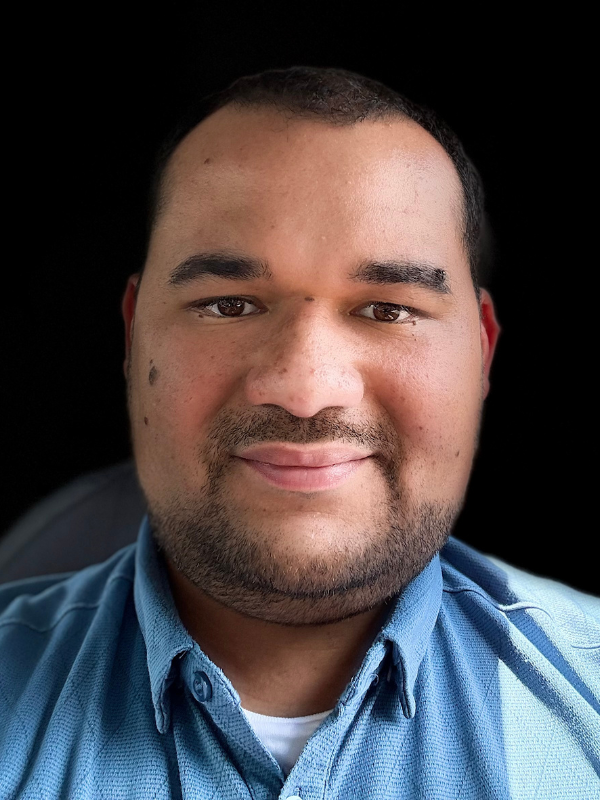 What does the 2025 theme “We Belong Here, and We’re Here to Stay” mean to you?
What does the 2025 theme “We Belong Here, and We’re Here to Stay” mean to you?
In these times where there is a lot of division based on appearances and backgrounds, it's a powerful message that states that the disability community is not ashamed of who we are and that we matter.
What piece of disability history or identity would you like more people to know about?
That the fight for disability rights goes way back before the Americans with Disabilities Act. It took a lot of hard work to reach that point.
What makes you proud to be a disabled person or disability advocate?
I am proud of who I am and helping others find their own path.
What’s your favorite part of having a disability?
Excellent parking spaces! In all seriousness there are many great people that I otherwise wouldn't have met without any ties to the disability community.
Why is it essential for disabled researchers & contributors to be at the forefront of disability research, particularly when these efforts are not being addressed elsewhere?
Nobody knows disability better than those who have experienced it firsthand. Nothing about us without us.
What’s something about living with a disability that people often misunderstand or overlook?
Going places or doing activities without calling ahead to make accommodation requests or making sure it is accessible can be a mistake.
What’s one experience you’ve had that highlights the ongoing struggle for disability rights and justice?
I have been politically active in ensuring Medicare and Medicaid is protected. It is vital for ensuring that people with disabilities receive the quality of life that they deserve.
Ruby Siegel, Research Associate
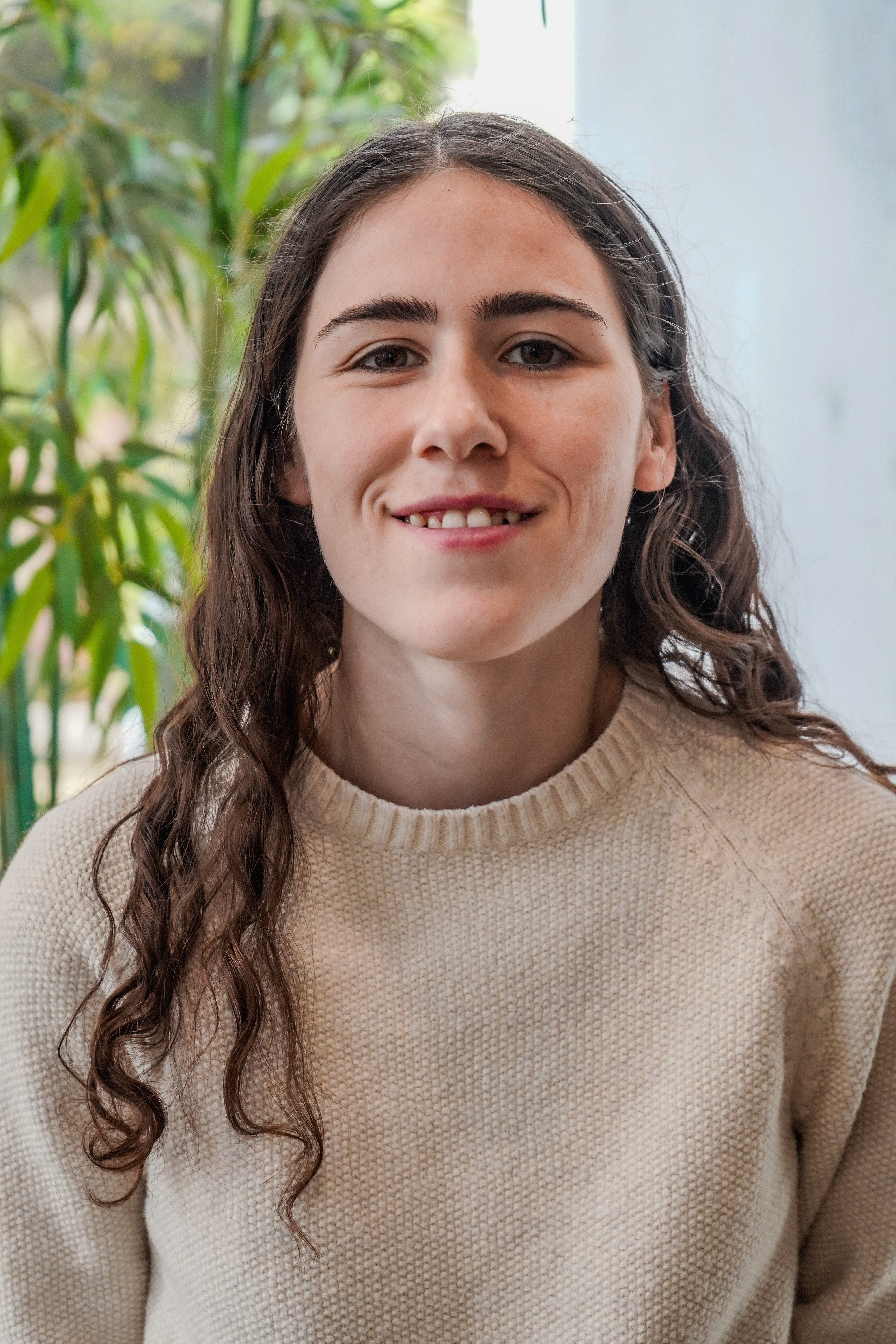 What does the 2025 theme “We Belong Here, and We’re Here to Stay” mean to you?
What does the 2025 theme “We Belong Here, and We’re Here to Stay” mean to you?
The disabled community will persist and survive despite our identities questioned, devalued, or despised.
What piece of disability history or identity would you like more people to know about?
The Black Panther Party (BPP) is known for providing meals to protesters of the 504 demonstration. However, the BPP's showed commitment to disability and health prior to the sit-in, evidenced by their coverage of disability in The Black Panther newspaper and call for free health care in their 1972 Ten Point Program. During the 504 sit-in, BPP put out a press release endorsement, supported their two members of BPP who were inside federal buildings, and provided extensive coverage of the demonstration in The Black Panther. Before tenants of disability justice were formally developed, the BPP actively practiced cross-movement solidarity.
Lauren Farley, Lurie Institute Student Fellow 2025–26
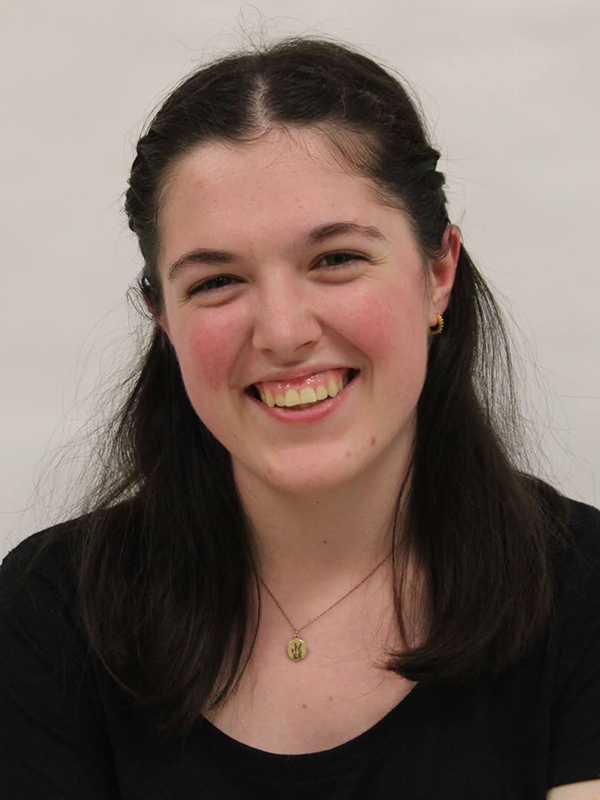 What does the 2025 theme “We Belong Here, and We’re Here to Stay” mean to you?
What does the 2025 theme “We Belong Here, and We’re Here to Stay” mean to you?
“We Belong Here, and We’re Here to Stay” to me means that people with disabilities have always existed, we’re not going anywhere, and we are a vital part of a vibrant and diverse society that values every individual person. We belong in all spaces, we have inherent value, and you can’t get rid of or deny our existence and importance.
How do you celebrate disability pride and center disabled joy this month?
This disability pride month, I’m centering disability education and advocacy in my non-disability-related job, focusing on bringing accessibility into the renewable energy industry.
What’s your favorite part of having a disability?
My favorite part of having a disability is the community I’ve found and how much I have learned from them. There was (and still is) so much I didn’t know about everything from the medical system to disability history that I have learned from the community, and it has been such an important part of my journey to meet and know others within the disability community.
Why is it essential for disabled researchers & contributors to be at the forefront of disability research, particularly when these efforts are not being addressed elsewhere?
It’s so essential for disabled researchers & contributors to be at the forefront of disability research because we have lived experience with disability and are aware of what needs to be addressed. We know where the gaps in research are because they impact us, and we’re strong advocates for what research remains to be done that is impacting our community.
What’s something about living with a disability that people often misunderstand or overlook?
Not all disabilities are visible, and not being able to see it doesn’t undermine the validity of people with invisible disabilities.
Aamna Tirmazi, Lurie Institute Student Fellow 2025–26
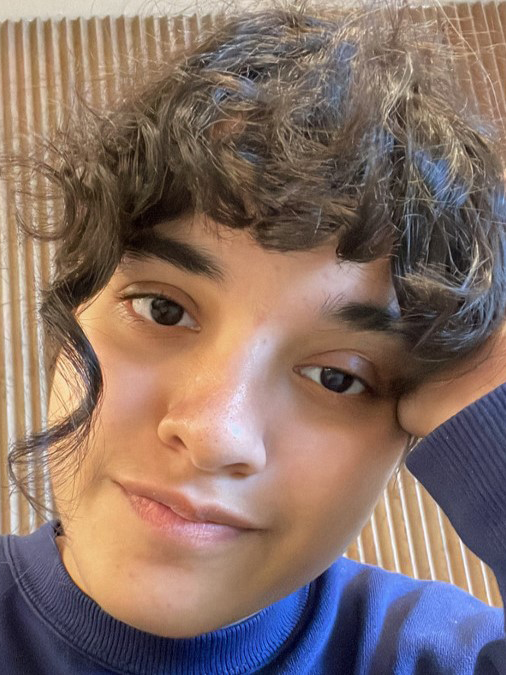 What’s your favorite part of having a disability?
What’s your favorite part of having a disability?
Community.
David Cahn, Lurie Institute Student Fellow 2024–25
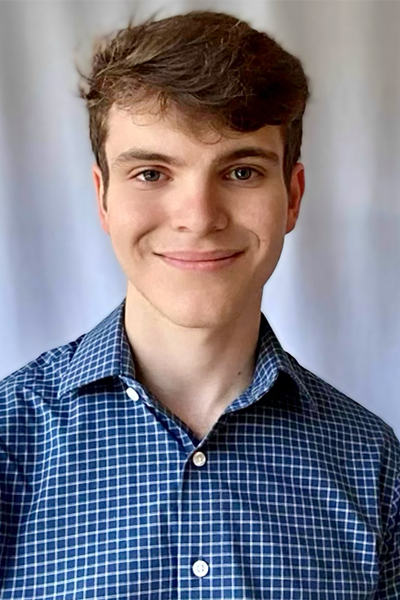 What piece of disability history or identity would you like more people to know about?
What piece of disability history or identity would you like more people to know about?
Until 1974, there existed unsightly beggar ordinances, or “ugly laws” that were enforced to keep disabled people out of the public eye.
How do you celebrate disability pride and center disabled joy this month?
I'm celebrating disability pride visiting Berkeley, CA, the birthplace of the Independent Living Movement!
How do you cope with the frustration of inaccessible systems or environments?
Being in community with and advocating alongside other disabled people.
Bipasha Roy, Lurie Institute Student Fellow 2025–26
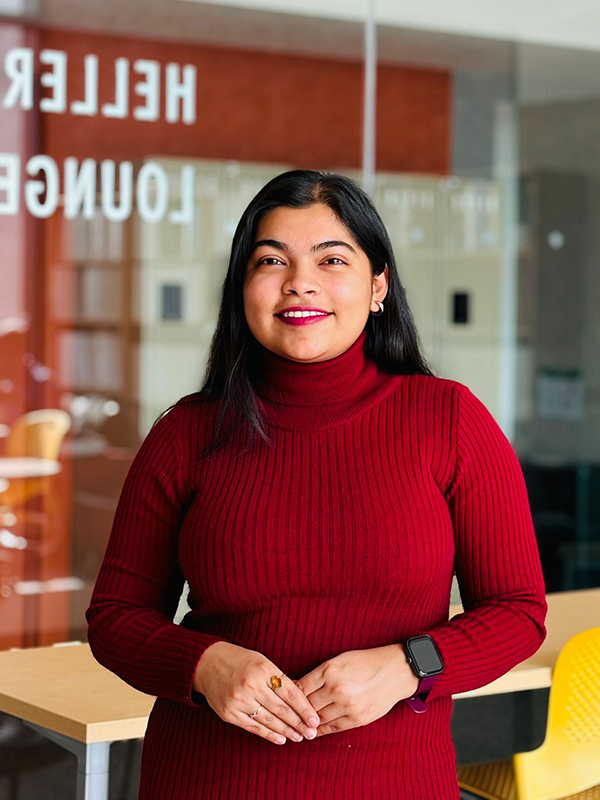 What does disability pride mean to you?
What does disability pride mean to you?
Disability Pride is about embracing your identity unapologetically. It is about voicing for yourself and/or others who might not always have the privilege to breath the freedom of expressing their true selves and simply "be."
Pride is about cultivating resilience and creating a community where every individual is seen, and valued, free from any judgement.
What does the 2025 theme “We Belong Here, and We’re Here to Stay” mean to you?
The theme resonates resilience to me. I guess, anyone and everyone has the right to voice for themselves and simply be heard out of respect.
What piece of disability history or identity would you like more people to know about?
I want more people to recognize the daily, often invisible labor of living in a world not designed for disabled individuals and to grow empathy by briefly stepping into those realities, even through simple acts like using crutches or navigating a day blindfolded.
How do you celebrate disability pride and center disabled joy this month?
I read personal stories of people who have either experienced any disability or has done caregiving as they move me and challenges my way of thinking and living.
What makes you proud to be a disabled person or disability advocate?
I feel proud to be a disability advocate because I believe deeply in the idea that every individual, regardless of ability, should have the opportunity to live the life they envision for themselves. In my previous work with a cradle-to-career organization, I saw how critical it is to ensure that people have access to education, empowerment, and dignified livelihoods throughout their life journey.
For me, advocacy is not about speaking for people, but about making space, removing barriers, and listening with care. I believe that those of us without disabilities have a responsibility to be active accommodators - to create systems, environments, and cultures where inclusion isn’t optional, but fundamental. My role is simple yet intentional: to support equity, amplify voices that are often overlooked, and build a world where no one is left behind simply because the world wasn’t designed with them in mind
Why is it essential for disabled researchers & contributors to be at the forefront of disability research, particularly when these efforts are not being addressed elsewhere?
It’s essential for disabled researchers and contributors to lead disability research because their lived experiences are key to raising awareness, challenging assumptions, and driving meaningful, systemic change.
